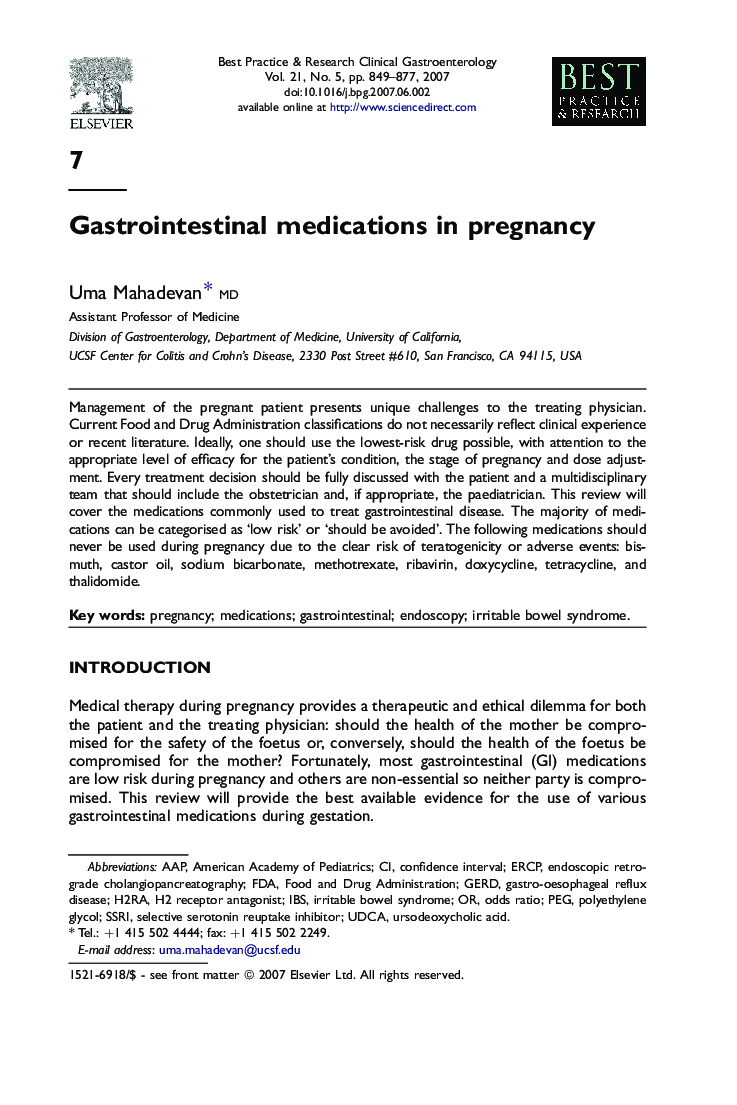| Article ID | Journal | Published Year | Pages | File Type |
|---|---|---|---|---|
| 3254717 | Best Practice & Research Clinical Gastroenterology | 2007 | 29 Pages |
Management of the pregnant patient presents unique challenges to the treating physician. Current Food and Drug Administration classifications do not necessarily reflect clinical experience or recent literature. Ideally, one should use the lowest-risk drug possible, with attention to the appropriate level of efficacy for the patient's condition, the stage of pregnancy and dose adjustment. Every treatment decision should be fully discussed with the patient and a multidisciplinary team that should include the obstetrician and, if appropriate, the paediatrician. This review will cover the medications commonly used to treat gastrointestinal disease. The majority of medications can be categorised as ‘low risk’ or ‘should be avoided’. The following medications should never be used during pregnancy due to the clear risk of teratogenicity or adverse events: bismuth, castor oil, sodium bicarbonate, methotrexate, ribavirin, doxycycline, tetracycline, and thalidomide.
